Double, double, toil and rubble: the Depot’s Macbeth transports us into a modern-day war
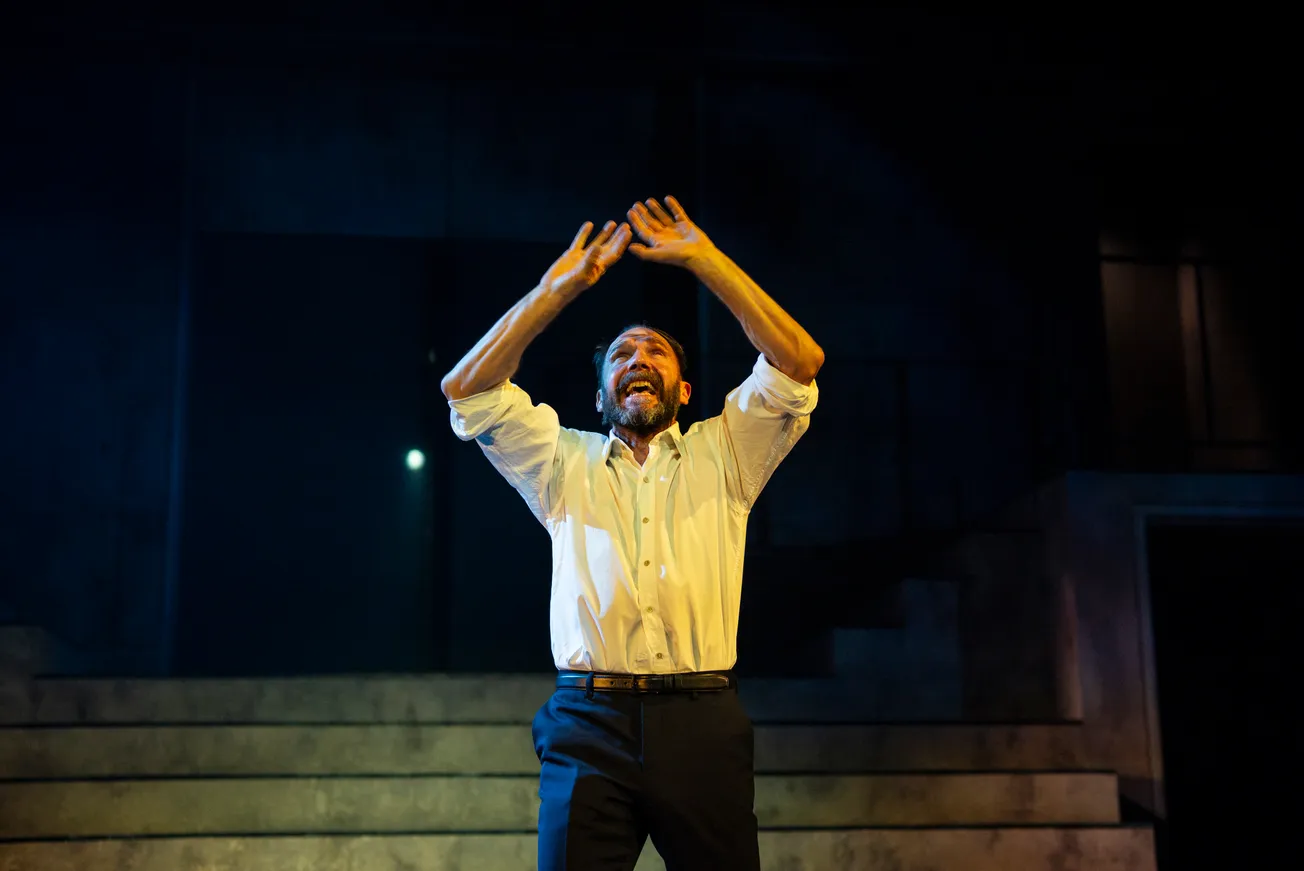
It has Ralph Fiennes, buckets of blood and a helicopter soundtrack. So why does it feel so quiet?
There’s a car on fire, but it’s so dim that it’s hard to make out your hand held in front of your face. Soldiers in combat fatigues stalk past, gaze stonily into the middle distance if you try and ask them the way. As you make your way to the edge of the wood, you locate your seat. You’re all packed in so tight that a lady spills some of her red wine on you, pushing past, while you come dangerously close to impaling yourself on the back of your chair for politeness’s sake. “G48,” she says plaintively. “Am I close?” Welcome to the Depot’s Macbeth.
The Depot, which first opened in 2021, was intended to be a film and television studio. But, as its inaugural theatre performance suggests, it’s every bit as fitting a space for an ambitious play. Directed by Simon Godwin (currently the artistic director of the Shakespeare Theatre Company), and starring two-time Oscar nominee Ralph Fiennes as the protagonist and Indira Varma (of Game of Thrones fame) as Lady Macbeth, Macbeth’s debut in Liverpool feels strategic — a suitably starry baptism for the studio-as-theatre before the play goes on tour, playing in warehouse venues in Edinburgh, London and Washington DC. Godwin told the BBC that he wanted to “rethink everything about the whole experience” of staging a play. He claims that Macbeth’s message “can resonate much more acutely and powerfully in an environment where the audience is not able to quite sit in their comfortable, plush red seats with their gin and tonic and their ice cream”.
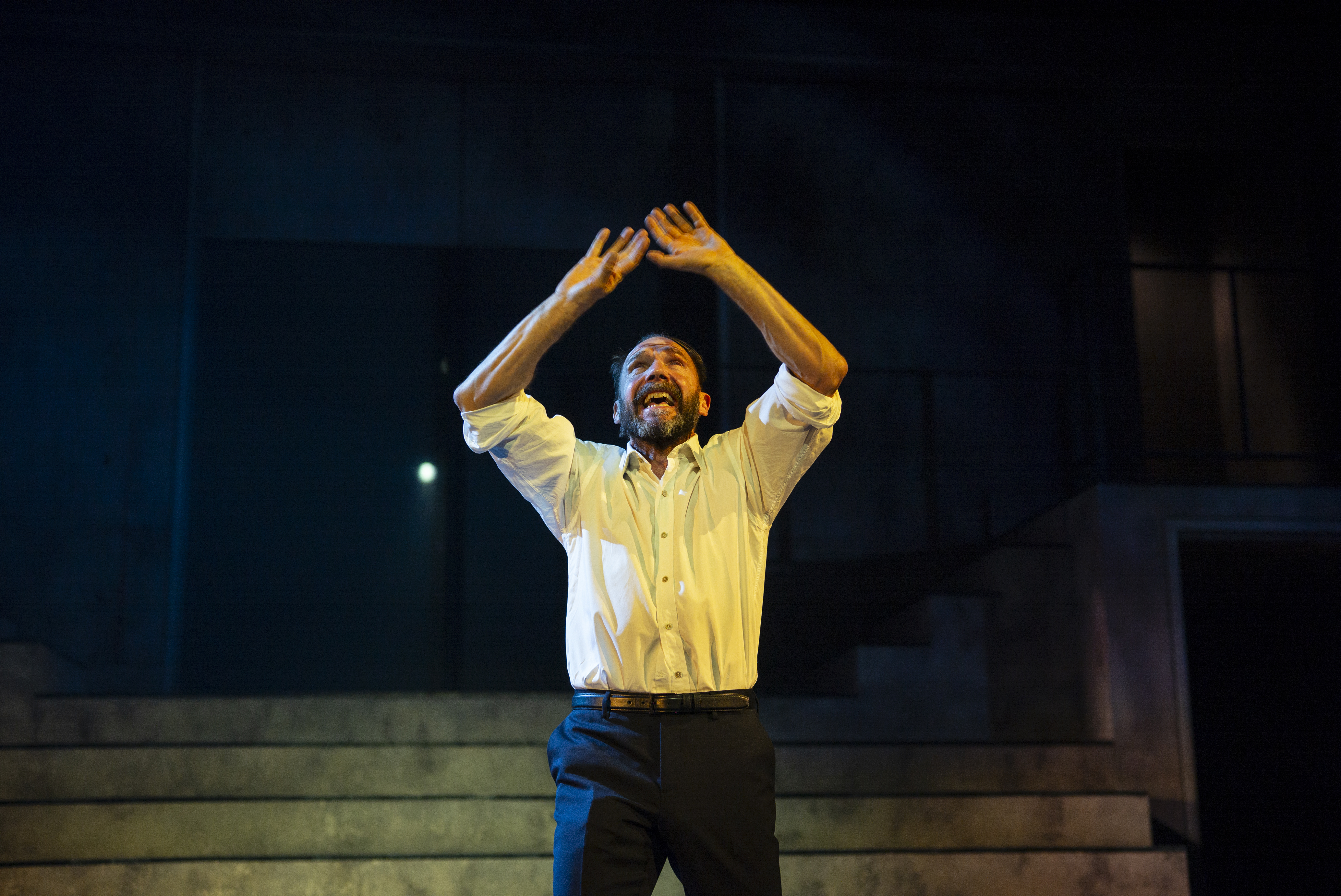
Is this true, though? Putting aside that I am not opposed to comfortable seats or a G&T on a trip to the theatre, if a play is forced to communicate the horror of violence via hard seats and a blanket ban on ice cream, what exactly does that say about the competence of its cast? The premise did not feel as revolutionary as Godwin made out (“Making a play a set in a contemporary war zone, as the wars around us have increased, becomes very poignant, and also complex”). This must be roughly the thousandth time that a contemporary war setting has been deployed for Macbeth. Godwin can give all the flowery quotes he likes, I thought, on my way to the Depot. But really — he is not exactly reinventing the wheel.
But there is expectation, and then there is the play itself. The contemporary war setting throws certain aspects of the play into relief that are less obvious on the page: why is Macbeth so relaxed and triumphant about the murders that he gets awarded for in wartime, and why does he unravel so completely when killing outside of a military context? This contradiction makes it clear that despite his coup, he is as credulous a part of the institutional order as anyone else. The horrible scenes in which children are murdered by adults feel particularly queasy-making in the current political context (though it’s hard to believe this was on purpose — presumably the play has been being rehearsed for a year or so).
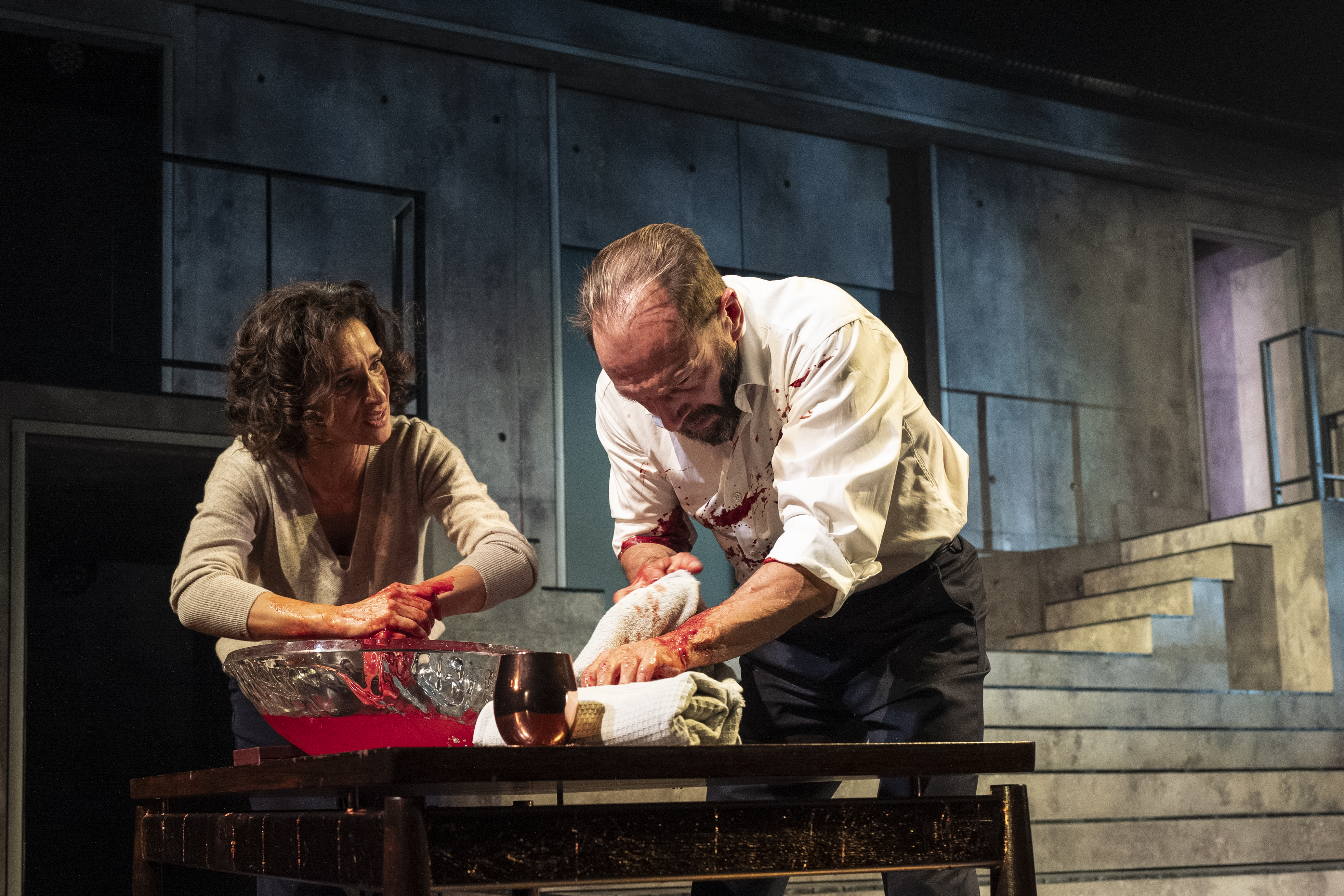
But what of the play itself? The first thing that strikes you on watching it is the layout of the stage: a set of steps and the sort of automatically opening doorway you find at the entrance to an office. It is chameleonic, serving just as well as the weathered steps of some war-torn city as it does the entrance to Macbeth’s own castle. There are multiple exits and entrances, allowing for the intricate choreography that the play requires in key scenes, where you need multiple characters moving in quick succession without running into each other.
It manages to feel both bleak and corporate, which ties in with the men in business suits — King Duncan’s courtiers — who accompany the monarch wherever he goes. This feels like a nod to the war-as-business commentary that veins the performance — Macbeth commissions murders at an expansive meeting table, leafs through ring binders to show his assassins their targets for the month (in this case, literal ones). Duncan’s gold chain, thick as a man’s arm, is passed to Macbeth on his death — presumably the product of the bounty his soldiers have won in battles. Duncan wears it with a dandyish flourish, but against Fiennes’ slighter frame, it seems to weigh him down. Unlike Duncan, Fiennes’ Macbeth seems to take little joy in the profits of his new job.
The second thing that strikes you is Fiennes himself. Yes, the man has appeared in more Shakespeare plays than most of us have polished off hot dinners. But the casting is not entirely uncontroversial. Fiennes is 60 — hardly one-foot-in-the-grave by civilian standards, but getting on in years for a military man, never mind a medal-laden war hero. In the BBC interview, Fiennes pooh-poohs any suggestion that he might be too old to play the protagonist by quoting the script: “‘I have lived long enough. My way of life is fall’n into the sere, the yellow leaf.” He said: “So you say those lines, and if you’re 60, it works.”
The reality of his performance is a little more ambiguous. Fiennes is a natural and talented physical actor — a marvellous moment where he plucks the dagger out of thin air before him could have been cartoonish in lesser hands. He is agile and acrobatic in places. But that’s all by the by: I was more concerned about his emotional stamina than his physical. Towards the end, he became more and more compelling in madness, but early on, his performance lacked the intensity one might expect from one of Shakespeare’s most tragic heroes.
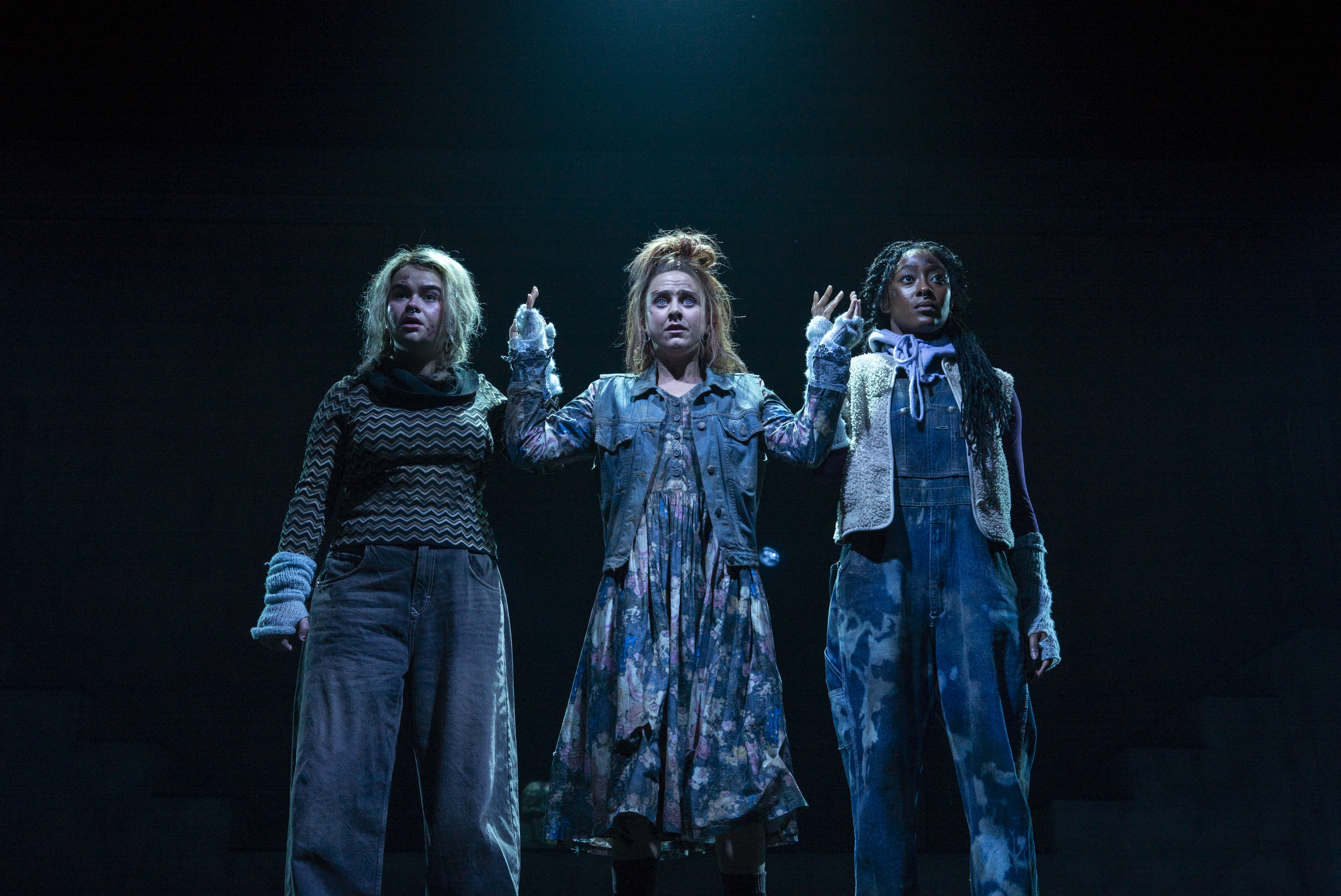
The same charge might be levelled at Varma as Lady Macbeth, with rather more impact on the play as a whole. Sitting there, I was reminded of the way Macbeth on the page does not entirely make sense. Yes, Macbeth hears something that sounds an awful lot like prophecy, yes, the first part of it comes true, so why shouldn’t the second? But it is a substantial leap of logic to hear “You will be king” and to take from it: “You must kill the king”. This leap only works if Lady Macbeth is well cast.
Because it is Lady Macbeth who is the electric centre of the play. She must be convincing as the work’s superego, its shadow self. How else to make sense of the mantra she seems to espouse in her first appearance? Fuck community, fuck loyalty, fuck friendship. Take everything you want and never look back. Only if this characterisation is successful can we truly believe that she would forge her plan: to kill the king, rather than to do as us lesser mortals might — to simply wait and see. After all, why shouldn’t Duncan die of his own accord?
Secondly, the two actors who play Macbeth and his wife must have the most insane chemistry. You must believe that they are not just in love but obsessed with one another. Why else would Macbeth go against everything he has believed in in his life so far, simply because his wife convinces him to?
Varma is a strangely bland Lady Macbeth. She titters, suggests killing the king in the same tone that a woman in your book club might suggest ordering a second bottle of Prosecco on a school night. Oh, go on! Let’s be naughty. Macbeth and Lady Macbeth’s reunion after so much time apart is bloodless: he halfheartedly squeezes her bum, they peck each other on the mouth. Not only would I not commit murder ensconced in such a relationship, neither would I get up off the sofa to fetch him the remote.
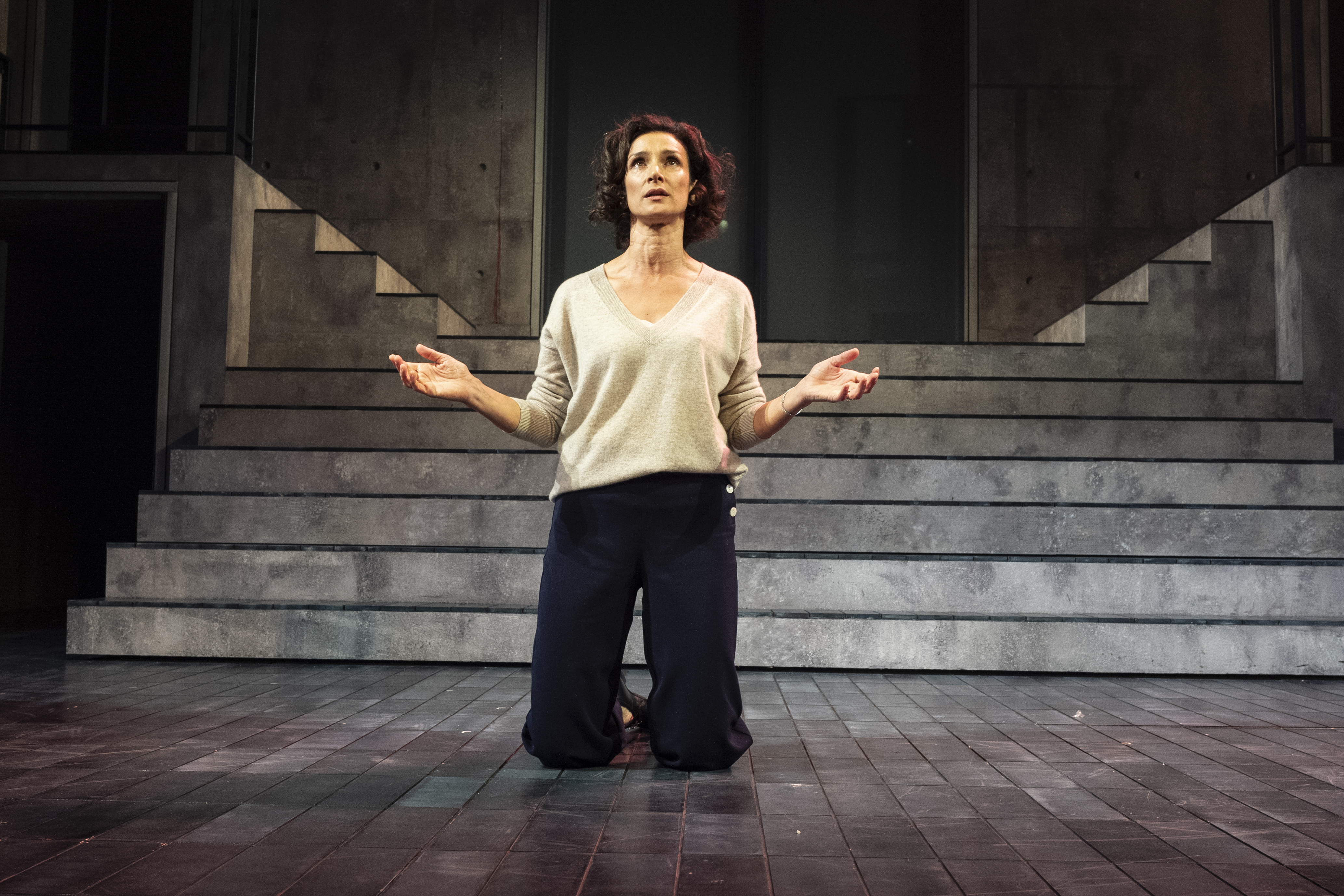
Varma’s performance improves as the play gathers speed, becoming rich and nuanced as she loses the plot. But at the beginning, as a charismatic architect of everything that follows? Not buying it. And without this, it’s hard to be swept along by the action.
It’s a shame, because the rest of the casting consistently matches (and in places, outshines) the starry leads. King Duncan (Keith Fleming) is confident and charming. Ben Turner as Macduff has the intensity Fiennes occasionally lacks. Jonathan Case as Seyton, a sort of Gen-Z butler (blonde highlights, George Michael single earring) is a delight. The dirtbag assassins-for-hire (Jake Neads and Michael Hodgson) make a feast out of a snack of a role.
It’s harder to know what to make of the witches. They’re sold to us in the opening scene as victims of this nameless military conflict — possibly refugees — but this angle isn’t followed through. They’re dressed like ordinary (if slightly grungy) young women, watching the action with all the glazed indifference of an 8am scroll of TikTok. Still, the actors playing them are sufficiently charismatic to wrest the spotlight away from the rest of the cast each time they appear.
The choreography is ambitious, with action spilling out into the audience as the play progresses. Perhaps fitting the venue, the action scenes skew closer to cinema than theatre — this is not some arty, abstract depiction of violence, but slit throats and blood gushing over the stage (and stagehands mopping the floor of spilled blood in between scenes). At times, I was forced to watch the action from behind my fingers.
But does Macbeth do what it sets out to? If you subscribe to Aristotle’s vision of the perfect tragedy — one whose actions prompt “pity and fear” and which elicits catharsis — you might feel that this performance falls short. Varma and Fiennes are spellbinding as the maddened versions of their characters, but too quiet as their sane selves to build the necessary bond with the audience early on. It’s hard to feel the oceans of emotion that a Shakespearean tragedy might elicit, or even a shadow of the emotion you might feel scrolling your newsfeed, in the coverage of conflicts this contemporary version takes inspiration from.
Godwin’s adaptation is bold in set and choreography, but despite the buckets of blood, A-list talent and helicopter soundtrack, it feels oddly quiet. The discomfort that the director promised is here in spades (hard seats, dim lighting, involuntary spasm at seeing house wine selling at £8 a pop — would the evening’s final murder be committed by me?), but does the message resonate so much more acutely and powerfully in such a setting? Afterwards, the lady sitting next to me would tell me that as we’d seen, Macbeth was about how violent men are. The lesson, she argued, was that women should rule the world! As ever, the war was as brutal as it was senseless. In this way, for the first time, Godwin’s version felt truly tragic.

Comments
Latest
The lost department stores of Liverpool
From Simone's to Belzan: How a hospitality magnate seduced Liverpool's tastemakers
Last minute drama, local revamps and Liverpool Doc Club
Is Williamson Square Liverpool's own Times Square?
Double, double, toil and rubble: the Depot’s Macbeth transports us into a modern-day war
It has Ralph Fiennes, buckets of blood and a helicopter soundtrack. So why does it feel so quiet?